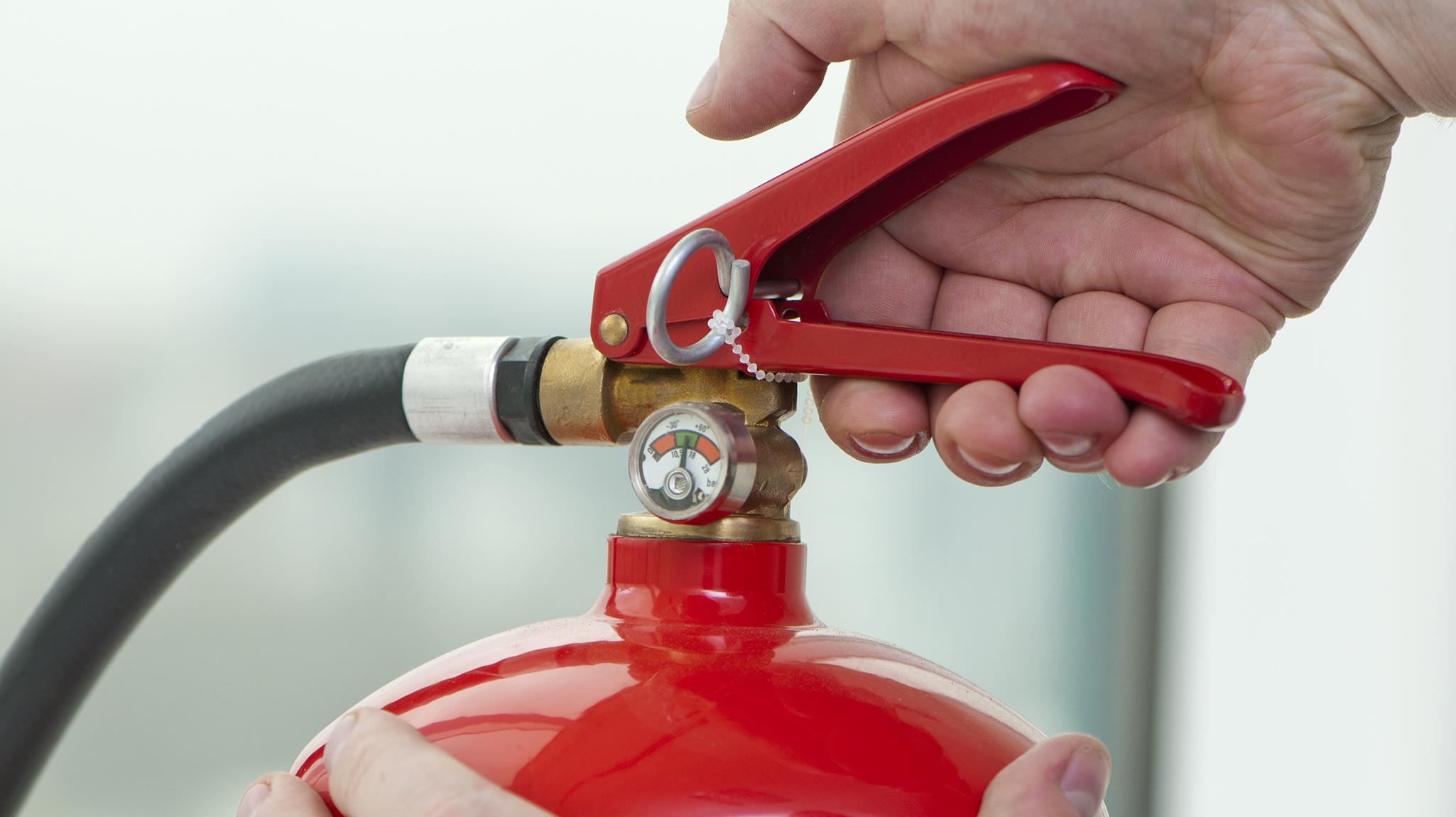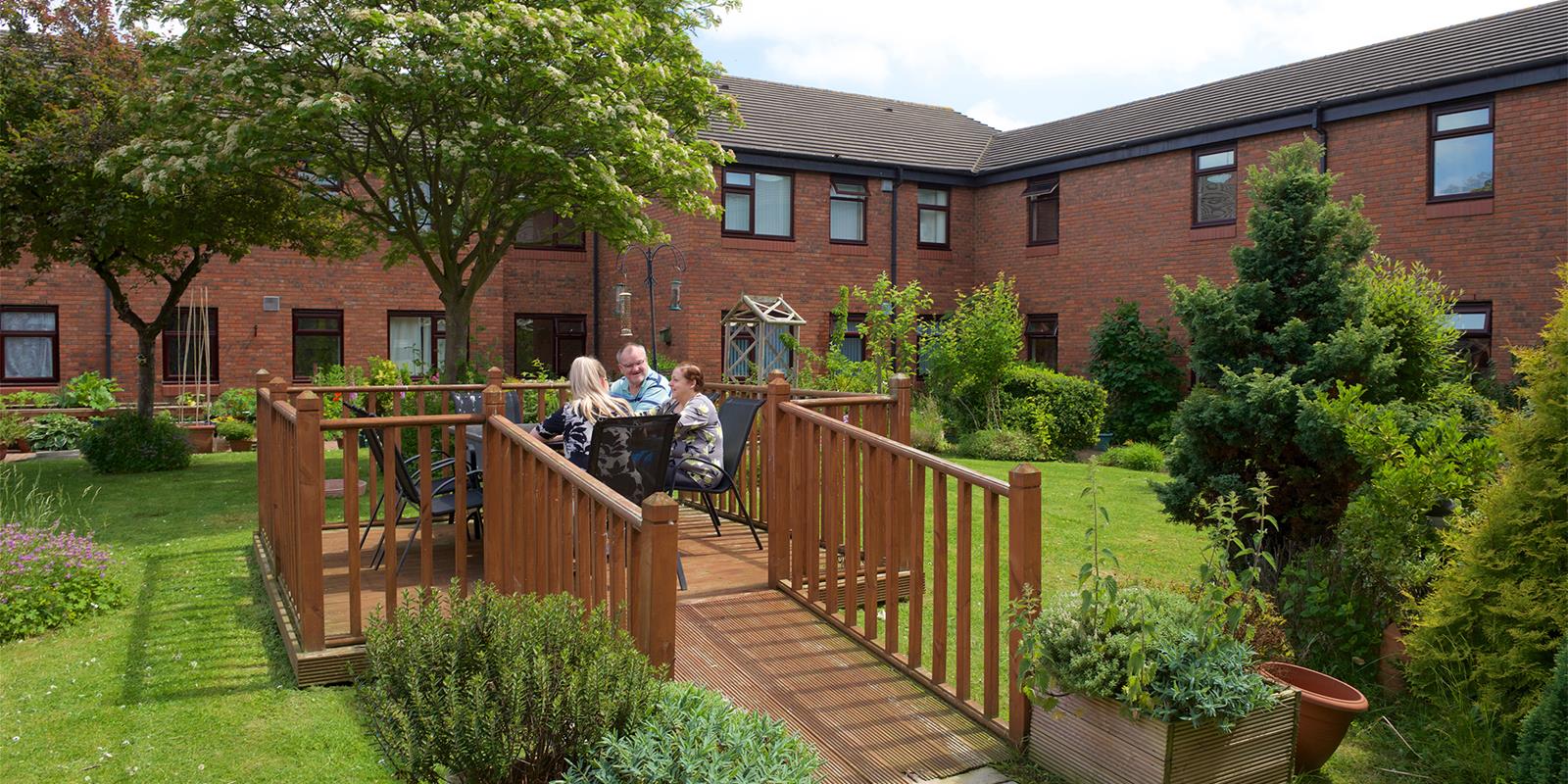Dealing with different issues in your community
People can behave in ways that are hard to deal with. Some of this behaviour may be classed as anti-social behaviour (ASB), and some may not. But all of it can still affect our lives and make us feel upset or worried.
This page explains the different types of difficult behaviour and gives tips on how to deal with them.
You can also go to the bottom of the page if you want to report a problem.
We don't class everyday sounds as anti-social behaviour (ASB). This includes things like:
- Hoovering/vaccuming
- Opening and closing doors
- Walking around
- Talking
- Children playing or babies crying
We only consider noise to be ASB if:
- It happens often
- It happens late at night
This includes things like loud music, DIY, dogs barking, or shouting.
How to Sort Out Noise Problems:
1. Talk to your neighbour
They may not know they're bothering you so a friendly chat may help.
If you don't feel comfortable speaking to them, you can use one of our Dear Neighbour cards to let them know how you feel.
If this doesn't work and the noise keeps happening, try these next steps.
2. Use The Noise App
The Noise App is a free app which helps you record the noise and send it to us.
Find out more about The Noise App
Keep a noise diary
Use our diary sheets to write down when the noise happens.
This helps us understand the problem, how often it’s happening, and may help if the police get involved.
Speak to your local council
You can also report noise to your local environmental health team.
If they take action, we can use their report to help deal with the problem.
Try mediation
Mediation is when an independent person helps you and your neighbour talk and agree on a way forward.
It’s private, safe, and helps both sides understand each other’s point of view.
We offer free mediation to help neighbours sort things out.
If you’re interested, let us know and we’ll arrange it for you.
Communal areas are the parts of your building that everyone shares.
Places like stairs, hallways, landings, and entrances are all communal areas.
Because everyone uses them, we all need to keep them clear and safe.
Using communal areas the wrong way can be seen as anti-social behaviour. This includes:
- leaving or storing things in communal areas
- Smoking in them
- Loitering or hanging around for no reason
What to do if there's a problem in your home's communal area
1. Talk to your neighbour
Your neighbour might not know they are causing an issue. Try having a friendly chat with them or give them a dear neighbour card to let them know how you feel.
2. Get in touch with us
Fill in the form at the bottom of this page to let us know what's happening.
3. We'll get in touch with your neighbour
We'll contact the neighbour, inspect the area and take the right steps to fix the problem.
Why it be a problem to store things in communal areas
Communal areas are often used as emergency escape routes. If they're blocked, people may not get out safely in a fire. We carry out fire-safety checks regularly.
Please remember:
- Don’t block stairs, halls, or landings
- Keep fire doors closed
- Remove personal items like prams, bikes, or mobility scooters.
- Don't store flammable materials (things that could catch fire) near electrics.
- Always put rubbish in the bin.
If you see anything in the communal areas that doesn’t belong there, please remove it, or tell us and we'll remove it.
Remember, we carry out regular inspections. If you’ve stored any items stored communal areas, they will be removed, and you’ll have to pay a charge for this removal.
Graffiti is when someone writes or draws on walls without permission. In certain circumstances, this can be seen as anti-social behaviour.
We can only deal with graffiti if it's in a communal area (like a hallway or stairwell) or somewhere on the estate that we look after.
How to deal with graffiti problems
1. Tell us
Fill in the form at the bottom of this page. Please tell us where the graffiti is and any other details you know. If you can, send us a photo.
2. We'll look at your report
We'll check what you've sent us and let you know wat we'll do next.
- If the graffiti is racist or abusive, we'll treat it as an emergency and get it cleaned quickly.
- If it's not, we'll treat it as a standard repair and remove it soon.
Graffiti aimed at you or your family
If the graffiti is about you or your family, this is considered to be abuse and harassment. We take this very seriously and will handle it in a different way to make sure you feel safe.
Graffiti in areas not owned by Accent
If you see graffiti outside of your estate, it may not be our responsibility. You can contact your local council to get it removed.
Fly-tipping is when people leave rubbish where they shouldn't. It can make shared spaces look messy and it can also be a fire risk.
What to do if you see fly-tipping
Talk to your neighbours
If you see rubbish left out, check with your neighbours first to see if it's fly-tipping.
Ask if the rubbish belongs to them and if they've already arranged for it to be taken away.
Report it to us
If the rubbish isn't theirs or if there's no sign of it being taken away, let us know.
You can fill in the form at the bottom of this page.
If you can, add a photo to show where the rubbish is and what it looks like. That helps a lot.
3. We'll take it away
Once we get your report, we’ll arrange to remove the fly-tipped items.
What if the fly-tipping isn't in an area owned by Accent?
If the rubbish is outside of Accent's property, you should report it to your local council. They can organise to have it cleared.
You can find your local council at GOV.UK
Vandalism is when someone damages or breaks things on purpose. This can include damaging things in a communal area or someone's personal property like their car or home.
What to do if vandalism happens
1. Report it to the police
If the damage is serious and has been done to someone's home, car or other personal things, you should tell the police.
- Call 101 if it's not an emergency
- Call 999 if it's and emergency or you see it happening.
Make sure you write down your incident number and the police officer’s name - this helps us work with the police to deal with it.
2. Tell us
Let us know what happened by filling in the form on this page.
If the police are involved, please give us the incident number and the officer’s name.
We'll help fix the problem.
If a group of young people often hang around near your home and you feel unsafe, tell the police.
- Call 101 if it's not an emergency
- Call 999 if it is an emergency
What to do next
1. Tell the police
Let the police know about the group and why you're worried. Ask for the incident number and the name of the police officer you speak to. You may need these later.
2. Tell us
After you speak to the police, let us know what's going on. You can do this by filling in the form at the bottom of this page. Remember to give us the incident number and the police officer's name.
3. Write down what you see
We’ll send you a sheet where you can write down the dates and times when the group is there. This helps us and the police understand the problem better.
4. We'll update you
We’ll work with the police if needed and let you know what we’re doing to help.
Gardens that are full of rubbish or very overgrown can be a problem. This isn't classed as anti-social behaviour (ASB), but we can still help manage the problem through other tenancy rules.
What to do if a garden is messy or causing problems
1. Talk to your neighbour
They might not realise their problem is causing a problem so a friendly chat might help. If you don't feel comfortable speaking to them, you could try printing out and leaving them one of our Dear Neighbour cards instead.
2. Tell us about it
You can report the garden by filling in the form at the bottom of this page.
3. We'll take a look
We will inspect the garden and take action if needed.
What if the garden isn't owned by Accent?
If the messy area is a park or land that Accent doesn't own, please contact your local council.
You can find your local council on GOV.UK
Any dog can be dangerous - it doesn't matter what breed or size it is.
If a dog is not under control and acts in a scary or aggressive way, it can be dangerous.
What to do if you are worried about a dangerous dog
1. Contact the police or your local council
If you're worried about a dog in your area, call the police.
- Call 101 if it's not an emergency.
- Call 999 if it is an emergency.
You can also contact your local council and speak to the dog warden.
2. Tell us about it
You can report the dangerous dog to us by filling in the form at the bottom of this page.
Dog fouling means when someone doesn't clean up their dog's poo. It's not nice for other people and can be dangerous, especially for children.
What to do if someone isn't cleaning up after their dog
1. Talk to your neighbour
If you know whose dog it is, have a friendly chat with your neighbour. Let them know they need to clean up after their dog.
If you don’t want to talk to them, you can leave one of our Dear Neighbour cards. This helps you say how you feel in a polite way.
2. Tell us about it
You can report this problem to us by filling in the form on this page.
3. We'll get the area cleaned
We will arrange to clean up the dog mess.
If we know who owns the dog and have proof, we will ask them to pay for the cleaning.
What if the mess is in a park or on the street?
If the dog mess is in a public place (like a park or pavement), contact your local council. If you have proof, they might speak to the dog owner or give them a fine.
You can find your local council on GOV.UK
We know that barking dogs can be annoying. But we can only act if the barking is constant and classed as anti-social behaviour (ASB).
Customers who own pets need our written permission and also have to sign a statement saying they’ll look after their pets and not allow them to cause problems.
If you think a pet is being hurt or not looked after properly, please tell the RSPCA as well as Accent. You can report this to us by using the form at the bottom of this page.
How to deal with excessive dog barking
1. Speak to the dog's owners
The dog's owner might not know their dog is causing a problem. Try talking to them first or if you don't feel comfortable doing this, you can leave one of our Dear Neighbour cards.
Download The Noise App
If talking doesn’t help or you don’t feel comfortable talking to them, download The Noise App.
It’s a free app which will help you record the barking and send it to us.
Keep a diary of the barking
Fill out one of our diary sheets that help you record the dates and times of the barking.
This helps us understand the situation, how often it’s happening, and can be helpful if we need to involve the police to take action.
Contact environmental health
You can also report it to your local environmental health officer. If they take action, we may be able to use this as evidence too.
Try our mediation service
We can refer you to a free and private mediation service. This helps neighbours talk and find a solution together.
Please contact us and we will refer you.
If you see a vehicle on Accent land that looks abandoned and might be stolen, please call the police:
-
Call 101 if it's not an emergency
-
Call 999 if it is an emergency
If you don’t think it’s been stolen, follow these steps:
1. Ask your neighbours
One of your neighbours might know who owns the vehicle.
2. Tell us
If no one knows who it belongs to, report it to us using the form at the bottom of this page.
In your report, please include the registration number and make of the vehicle.
3. We’ll take it from there
We’ll check with the DVLA to see if the vehicle is registered to anyone.
If it’s not registered, we’ll ask the council to remove it.
What if the vehicle isn’t on Accent land?
If you think it’s been stolen, please call the police on 101.
If not, please report it to your local council so they can deal with it.
You can find your local council on GOV.UK.
If a neighbour is making a lot of noise doing repairs, try talking to them first. They may not know the noise is too loud or bothering you.
If the noise keeps happening, check our noise nuisance section for advice on what to do next.
If it's happening on a public road
If it's happening on a public highway, your Local Authority can look into it under the Clean Neighbourhood and Environment Act 2005.
You can find your local council on GOV.UK
Road traffic offence
If you see someone driving dangerously or too fast, please report it to the police:
-
Call 101 if it’s not an emergency
-
Call 999 if it is an emergency
Obstructive parking is when a vehicle blocks you from getting in or out of your home or parking space.
If the obstructive vehicle is on Accent land and needs moving urgently, contact us and we'll try to help.
If it’s not on our land, call the police on 101.
How to deal with obstructive parking
1. Speak to your neighbour
They might not know their parking is a problem. A friendly chat might help to fix the issue.
If you don't feel comfortable speaking to them, you can print a Dear Neighbour card and leave it on their car.
Contact your local council
If the vehicle is on a public road or verge and still causing issues, report it to your local council.
They can give a fine if it breaks local parking rules.
Find your local council on GOV.UK




